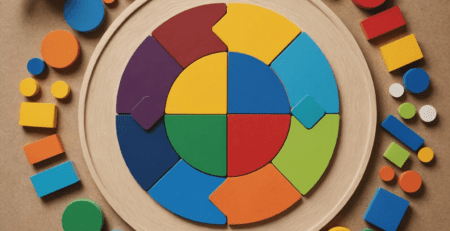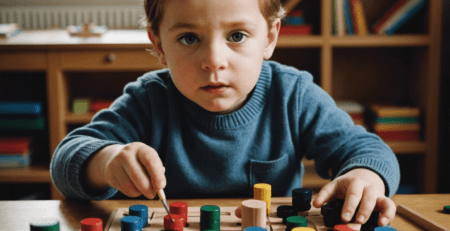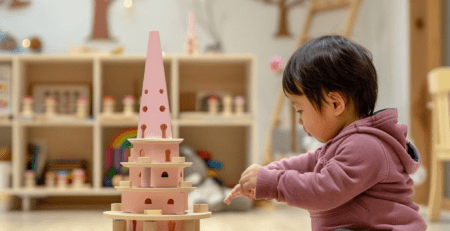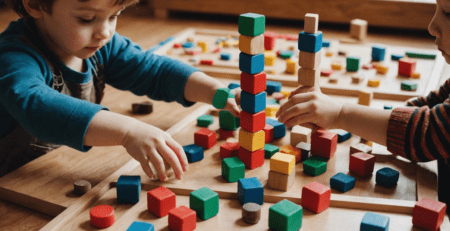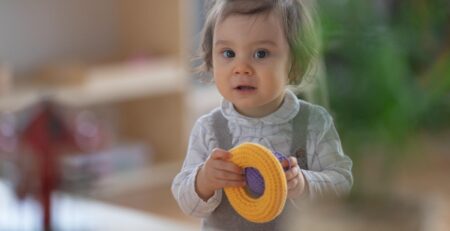
18
The Montessori Method: Unlocking the Potential of Every Child
Have you ever heard of the Montessori method? Created by Maria Montessori in the early 20th century, this educational approach has been gaining popularity in recent years. But what exactly is Montessori? In this article, we will explore the principles and practices of the Montessori method, and delve into the ways it uniquely shapes the learning experience for children. Whether you’re a parent considering this educational approach for your child, or simply curious about its philosophy, read on to discover the essence of Montessori.
Table of Contents
- What is Montessori?
- The Montessori Philosophy
- Montessori Education Principles
- The Montessori Classroom Environment
- Q&A
- Concluding Remarks
What is Montessori?
Montessori education is a unique approach to learning that focuses on the child as an independent learner and nurtures their natural curiosity and creativity. This educational method was developed by Dr. Maria Montessori in the early 20th century and has since gained popularity worldwide.
At the core of Montessori education is the belief that children learn best when they are free to explore and discover at their own pace, using hands-on materials and engaging in self-directed activities. The Montessori environment is carefully prepared to promote independence, social interaction, and a love of learning.
Key Principles of Montessori Education:
- Child-centered approach
- Multi-age classrooms
- Hands-on learning materials
- Freedom within limits
- Respect for the child’s individuality
Montessori education is not just a teaching method, but a philosophy that respects the natural development of children and aims to cultivate a lifelong love for learning. If you’re considering Montessori education for your child, it’s important to understand these key principles and how they shape the learning environment.
| Principle | Description |
|---|---|
| Child-centered approach | Focus on the individual needs and interests of each child |
| Multi-age classrooms | Promote collaboration and peer learning |
| Hands-on learning materials | Engage the senses and support exploration |
| Freedom within limits | Encourage independence while providing structure |
| Respect for the child’s individuality | Emphasize the unique qualities of each child |
In summary, Montessori education goes beyond traditional teaching methods by embracing the natural curiosity and individuality of each child. By providing a nurturing and stimulating environment, Montessori education aims to foster a lifelong love for learning and a strong sense of independence and self-confidence in children.
The Montessori Philosophy
The Montessori philosophy is an educational approach developed by Dr. Maria Montessori, an Italian physician and educator, in the early 20th century. The core idea of the Montessori method is to provide a child-centered educational environment that encourages independence, freedom within limits, and a natural love for learning. This philosophy is based on the belief that children are naturally curious, capable, and eager to learn, and that they thrive in an environment that allows them to explore and discover at their own pace.
One of the key principles of is the emphasis on a mixed-age classroom, where children of different ages learn together, allowing for peer-to-peer learning and mentorship. The Montessori method also places a strong focus on hands-on, experiential learning, with a wide range of specially designed materials and activities that aim to stimulate the child’s senses and promote intellectual, physical, and emotional development. This approach fosters a love for learning that is sustained throughout the child’s life, as they develop a strong sense of curiosity, self-motivation, and a passion for discovery.
Montessori Education Principles
Montessori education is a teaching approach developed by Dr. Maria Montessori in the early 20th century. It is based on the belief that children are naturally eager to learn and develop at their own pace. The Montessori method is characterized by certain principles that guide the learning environment and teaching techniques.
Some key principles of Montessori education include:
- Child-centered approach: The focus is on the individual needs and interests of each child, allowing them to explore topics they are passionate about.
- Multi-age classrooms: Children of different ages and abilities work together, fostering a sense of community and collaboration.
- Self-directed learning: Students are encouraged to make choices and take responsibility for their education, leading to independence and self-motivation.
Furthermore, Montessori education emphasizes hands-on, experiential learning and the use of specially designed materials that promote sensory exploration and cognitive development.
The Montessori Classroom Environment
In a Montessori classroom, the environment plays a crucial role in the education of children. The setting is carefully designed to foster independence, creativity, and a love for learning. is purposefully structured to encourage exploration and hands-on learning, providing children with the tools they need to learn at their own pace.
The classroom is filled with carefully chosen materials that are accessible to the children, allowing them to engage in self-directed activities. Everything in the environment, from the furniture to the tools, is child-sized, creating a space that is tailored to the needs of the students. The design of the classroom promotes a sense of order, beauty, and harmony, providing a peaceful and focused atmosphere for learning. This unique environment empowers children to develop important skills such as concentration, problem-solving, and social interaction, setting the stage for a lifelong love of learning.
| Key Features of Montessori Classroom |
| Child-sized furniture and tools |
| Hands-on learning materials |
| Encourages independence and self-discovery |
Q&A
Q: What is Montessori education?
A: Montessori education is an approach to learning that emphasizes independence, freedom within limits, and the development of a child’s natural abilities.
Q: Who developed the Montessori method?
A: The Montessori method was developed by Dr. Maria Montessori, an Italian physician and educator, in the early 20th century.
Q: What are the key principles of the Montessori method?
A: The key principles of the Montessori method include mixed-age classrooms, student-led learning, and a focus on hands-on, experiential learning.
Q: What age group does Montessori education cater to?
A: Montessori education can cater to children from infancy to adolescence, with different programs tailored to each age group.
Q: What sets Montessori education apart from traditional schooling?
A: Montessori education emphasizes individualized learning, self-paced progress, and a holistic approach to education that focuses on the development of the whole child.
Q: How do Montessori classrooms differ from traditional classrooms?
A: Montessori classrooms are typically designed to be open and child-friendly, with a focus on hands-on materials and activities. They are also typically characterized by mixed-age groups and a more relaxed, student-led atmosphere.
Q: What are the potential benefits of Montessori education?
A: Potential benefits of Montessori education include improved independence, creativity, and problem-solving skills, as well as a love of learning and a strong sense of community.
Q: Are there any criticisms of the Montessori method?
A: While the Montessori method has many dedicated supporters, some critics argue that it may not prepare children for the structure of traditional classrooms or the demands of standardized testing.
Concluding Remarks
In conclusion, the Montessori method offers a unique and individualized approach to education that focuses on fostering independence, creativity, and a love for learning in children. By emphasizing hands-on learning and respecting each child’s unique pace and strengths, Montessori education has proven to be successful in nurturing well-rounded and self-motivated individuals. Whether you are a parent considering Montessori for your child or an educator looking to learn more about this innovative approach, it is clear that the principles of Montessori can have a profound impact on the way we view and support childhood education. Embracing the Montessori philosophy may just be the key to unlocking the true potential of every child.


